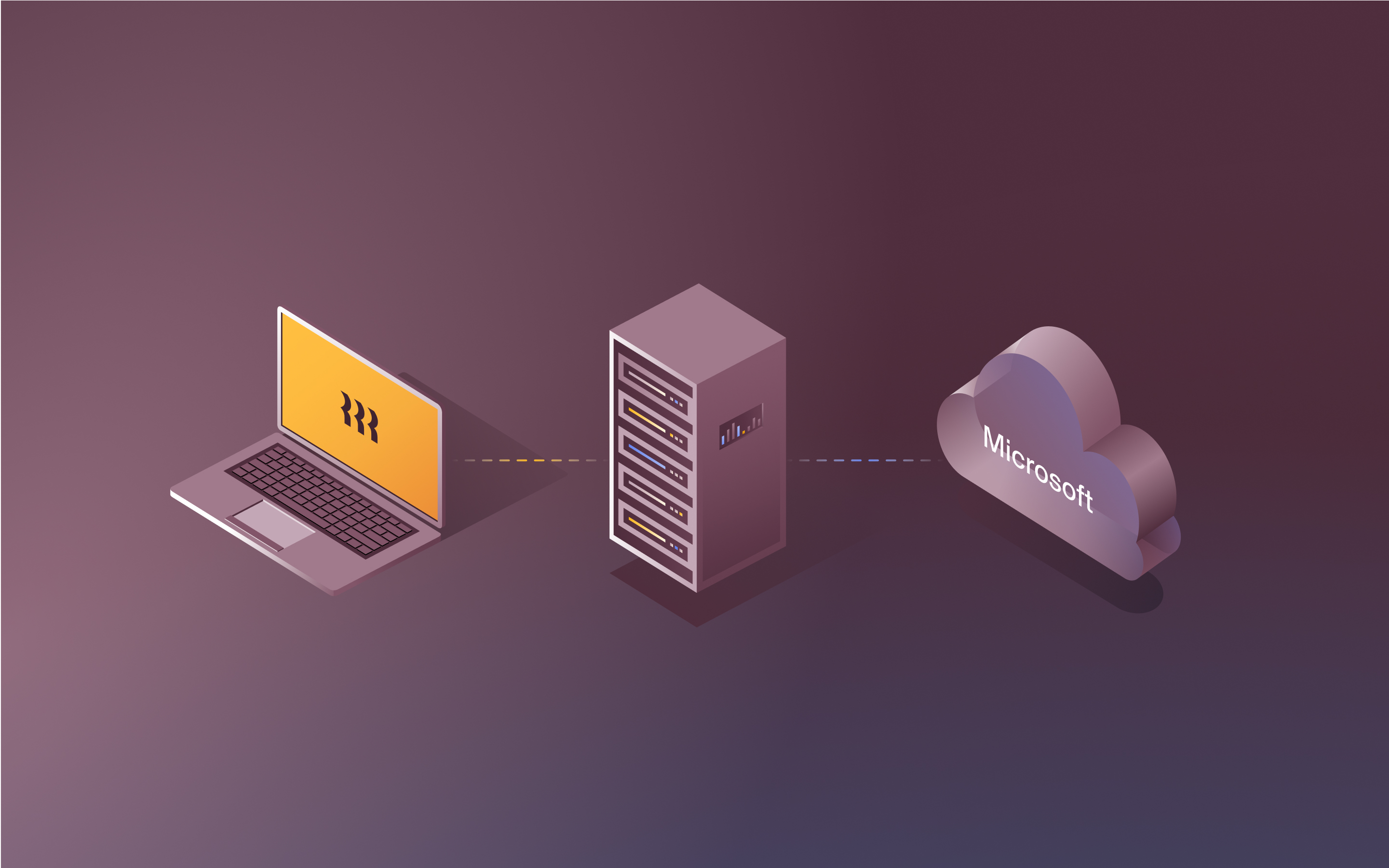The 10 best Auth0 Alternatives with choosing tips (2025)
Auth0 is a well-known player in the identity and access management (IAM) space (now operating as part of Okta following their 2021 acquisition), but it's not the only option out there. As businesses look to secure their digital assets and streamline user access in 2025, it's worth exploring alternatives that could better suit your unique needs.
In this article, we'll take a closer look at 10 top Auth0 competitors that are shaking up the IAM space and offering compelling reasons to consider a switch.
What is Auth0?
Auth0 is a cloud-based IAM platform that provides developers with tools and APIs to implement authentication and authorization in applications. The platform offers:
- Single sign-on (SSO) & Identity federation: Enables access across applications using industry standards like OAuth 2.0, OpenID Connect, and SAML. Auth0 connects with multiple identity providers and handles federation scenarios.
- Authentication options: Provides multiple authentication methods including traditional passwords, social logins, and multi-factor authentication (MFA). The Universal login feature manages consistent login experiences across applications.
- Enterprise capabilities: Offers features like anomaly detection, user management, and reporting tools. Higher-tier plans include role-based access control, magic link and SMS authentication, and SSO tiers.
Auth0 focuses on providing developers with tools to implement identity management while supporting both simple and complex authentication requirements across different types of applications.
Why do you need an alternative to Auth0?
While Auth0 provides a functional IAM solution, it has some limitations that may make it less than ideal for certain use cases:
Pricing structure for growing companies
The pricing model can become a consideration as organizations scale, particularly for B2C applications or freemium products with large user bases. Users report that Auth0's costs can increase substantially when moving beyond free tier limits or needing enterprise features like SAML integration. Organizations should carefully evaluate their expected user growth and required features when planning their authentication budget.
Customization complexity for specific use cases
While Auth0 offers customization options, implementing complex authentication flows or highly customized user journeys may require a solid understanding of the platform’s APIs and configuration capabilities. This can impact implementation timelines and resource allocation, especially for teams with unique requirements.
Integration considerations
Though Auth0 provides many pre-built integrations, implementing certain scenarios can present challenges. This is particularly relevant when dealing with complex multi-tenant architectures or when specific security and access control requirements need to be met.
Migration flexibility
The unique architecture and approach to handling user data and authentication flows can make system migrations more complex. Organizations might want to consider their long-term needs when evaluating identity management solutions.
10 best Auth0 alternatives for businesses
With Auth0's potential drawbacks in mind, let's explore 10 leading alternatives offering compelling features and benefits.
1. Rippling
Rippling brings a fresh approach to identity and access management by solving the age-old problem of HR-IT miscommunication. Instead of treating employee data and access management as separate concerns, Rippling creates a single source of truth that drives everything from account provisioning to device management to security policies. This means when HR makes any change—from hiring someone new to processing a departure—all the related IT tasks are triggered automatically.
Key features
- Native integration of HRIS and IdP without complex SCIM configurations
- Enterprise-grade security with SOC 2 Type II, ISO 27001 certification
- Dynamic MFA policies based on role, department, and behavior
- Real-time syncing across 600+ pre-built integrations
- Custom workflow builder with visual automation tools
- Complete device lifecycle management including procurement and retrieval
- Automated compliance and audit reporting
Benefits
- Reduces IT administrative work by over 50%
- Eliminates manual data reconciliation between systems
- Enables zero-touch employee onboarding and offboarding
- Simplifies device management across all platforms
- Enables granular access controls based on any attribute
What makes Rippling superior to other IAM solutions?
Rippling fundamentally stands apart by treating HR data as the foundation of identity management, rather than just another integration point. While traditional IAM solutions excel at authentication, they still require significant effort to stay synchronized with HR changes, leading to manual updates and potential security gaps.
In contrast, Rippling's integrated approach means that HR data automatically drives access management. In other words, when someone changes roles, gets promoted, or leaves the company, all their permissions and device settings update instantly without extra manual work.
2. Microsoft Entra ID
Microsoft Entra ID (formerly Azure Active Directory) is an integrated cloud identity and access solution that provides authentication and authorization services across Microsoft's ecosystem and third-party applications. The platform serves as a central hub for managing identities across cloud and on-premises environments.
Key features
- SSO and app integrations across cloud/on-premises
- Passwordless and multi-factor authentication options
- Conditional access and identity protection capabilities
- Privileged identity management
What makes Microsoft Entra ID a good alternative to Auth0?
Microsoft Entra ID distinguishes itself through deep integration with Microsoft's ecosystem and enterprise-focused features. Entra ID works for organizations requiring integration with Microsoft services and governance features.
3. OneLogin
OneLogin is another cloud-based IAM platform that provides solutions for both workforce and customer identity management. It offers centralized access control for applications, devices, and users through its platform.
Key features
- Adaptive MFA with SmartFactor authentication
- Directory synchronization (AD, LDAP, VLDAP, G Suite, Workday)
- Identity lifecycle management for automated user provisioning/deprovisioning
- Cloud directory with social login capabilities
What makes OneLogin a good alternative to Auth0?
OneLogin positions itself as a more enterprise-focused solution with emphasis on workforce identity management. While Auth0 is more developer-centric and customizable, OneLogin offers HR system integrations and directory synchronization capabilities.
4. JumpCloud
JumpCloud is an open directory platform that provides identity, device, and access management capabilities. The platform focuses on delivering secure access to resources from managed devices across different operating systems and locations.
Key features
- Cross-platform device management (Windows, macOS, Linux, iOS, Android)
- Cloud directory services with LDAP, RADIUS, and SAML support
- Automated identity lifecycle management with HR system integration
- Zero-trust security implementation with conditional access
What makes JumpCloud a good alternative to Auth0?
JumpCloud distinguishes itself through its focus on device management and directory services, while Auth0 emphasizes developer-centric identity solutions. The platform offers device management capabilities and directory services, for organizations needing endpoint control alongside identity management.
5. Keycloak
Keycloak is an open-source IAM solution that provides authentication and authorization capabilities for applications. The platform offers user federation and user management features.
Key features
- Support for LDAP and Active Directory federation
- Social login and identity brokering with OpenID Connect/SAML 2.0
- Admin console for server management and user administration
- Authorization services beyond role-based access
What makes Keycloak a good alternative to Auth0?
While Auth0 offers a managed service, Keycloak stands out as an open-source alternative that provides similar core functionality but suitable for organizations that prefer self-hosted solutions or need to meet specific compliance requirements through on-premises deployment.
6. Firebase
Firebase is a backend-as-a-service solution that provides authentication capabilities as part of the larger Firebase platform. It integrates with other Firebase and Google Cloud services to provide authentication and user management capabilities for mobile and web applications.
Key features
- Multiple authentication providers (email/password, social, phone)
- Integration with Google Cloud Platform services
- Realtime database security rules integration
- User management system
What makes Firebase a good alternative to Auth0?
Firebase differs from Auth0 by being deeply integrated into Google's ecosystem and offering a streamlined, development-focused approach. While Firebase works for developer teams building apps within the Google Cloud Platform ecosystem, Auth0 focuses on enterprise-grade identity management, especially when integrating with third-party enterprise applications and services. Firebase is suitable for teams already using other Firebase services or requiring tight integration with Google Cloud Platform.
7. Ping Identity
Ping Identity provides a platform designed to handle identity management needs with a focus on enterprise security and seamless user experiences.
Key features
- Lifecycle management and user provisioning
- MFA and passwordless authentication options
- AI-driven identity services through Helix initiative
- Identity verification and threat protection
What makes Ping Identity a good alternative to Auth0?
Ping Identity positions itself as an enterprise-focused solution with emphasis on scalability and deployment scenarios.
8. Frontegg
Frontegg is a B2B-focused customer identity and access management platform (CIAM) that offers low-code implementation and self-service capabilities. The platform provides identity management solutions with attention to multi-tenancy and enterprise requirements.
Key features
- Multi-tenancy support for organizational structures
- Self-service admin portal for user and security management
- Entitlements with RBAC and ABAC capabilities
- Subscription and feature flag management
What makes Frontegg a good alternative to Auth0?
Frontegg positions itself as a more specialized B2B solution compared to Auth0's broader approach. While Auth0 requires more custom development for B2B-specific features, Frontegg offers support for organizational hierarchies, subscription management, and tenant-specific configurations.
9. FusionAuth
FusionAuth is a developer-focused authentication and authorization platform that can be self-hosted or cloud-deployed. The platform provides authentication services with an API-first approach designed for development teams.
Key features
- Customizable authentication flows with OAuth2, OIDC, and SAML v2 support
- Multi-factor authentication and passwordless options
- User management with custom fields and forms
- Social and enterprise identity provider integration
What makes FusionAuth a good alternative to Auth0?
While Auth0 provides a managed service, FusionAuth offers similar capabilities with the flexibility to self-host. This gives teams more control over their authentication infrastructure and helps avoid vendor lock-in, though it does mean taking on the responsibility of maintenance and updates.
10. Descope
Descope is a no/low-code CIAM platform focused on creating authentication workflows. The platform enables visual building of user journeys and authentication flows with drag-and-drop functionality, while also offering traditional coding options through SDKs and APIs.
Key features
- Visual workflow builder for authentication flows
- Multi-tenant architecture with SSO and SCIM provisioning
- Risk-based MFA with device fingerprinting
- Multiple authentication methods (passwordless, social, biometric)
[H4] What makes Descope a good alternative to Auth0?
While Auth0 offers broad functionality through custom development, Descope emphasizes no-code/low-code implementation to authentication flows. It works for organizations that want to implement and modify authentication flows without heavy development resources.
How to choose the right authentication tool
With many capable Auth0 alternatives available, selecting the optimal solution requires careful evaluation. Key factors to consider include:
1. Security features and compliance
Rigorously assess each platform's security architecture, encryption methods, and compliance certifications. Prioritize solutions adhering to stringent security standards like SOC2, ISO27001, and HIPAA. For regulated industries, ensure the solution satisfies all relevant compliance mandates.
2. Ease of integration
Evaluate how seamlessly each authentication tool integrates with your existing tech stack. Favor solutions offering robust pre-built connectors, comprehensive APIs and SDKs, and clear integration documentation to minimize custom development effort.
3. Scalability and performance
Consider each platform's ability to handle your user volumes and peak traffic levels across different regions. Look for solutions that offer:
- Global availability and low latency for your target markets
- Reliable performance during traffic spikes
- Strong uptime guarantees and failover capabilities
- Ability to scale with your business growth
Remember to evaluate the platform's track record with organizations similar to yours in size and geographic distribution.
4. Customization and extensibility
Understand your organization's unique security, branding, and workflow needs. Assess each solution's customization options for login experiences, security policies, and identity workflows. More complex requirements may favor solutions offering extensive customization via APIs and code-level extensibility.
5. Pricing and TCO
Perform a comprehensive cost analysis looking beyond base licensing fees. Account for costs associated with implementation, customization, user scale, and ongoing support. Assess pricing transparency and predictability, being mindful of added costs for advanced features or exceeding usage thresholds.
Rippling: Easy identity and access management
Evaluating leading Auth0 alternatives, Rippling stands out by fundamentally rethinking how identity management should work. Unlike traditional IAM solutions that treat HR as just another integration, Rippling is the one of the first platforms to truly unite HR and identity systems, allowing companies to:
- Automatically manage access rights based on any HR attribute or change, from hiring to role changes to departures
- Control the entire device lifecycle alongside identity management, from procurement to configuration to retirement
- Automate license management and group membership for key tools like Google Workspace, handling everything from provisioning new licenses to maintaining dynamic email distribution lists
- Enforce sophisticated security policies that automatically adapt to organizational changes without manual updates
- Create and manage dynamic groups ('Supergroups') that automatically update based on employee attributes like department, location, or role
- Eliminate manual work between HR and IT systems through native integration rather than complex SCIM configurations
- Deploy global device management and inventory tracking within the same platform as identity management
Rippling's identity solution enables businesses to efficiently secure all IT resources through a unified, automated IAM approach. By eliminating identity silos and manual interventions, Rippling empowers companies to elevate their security posture while minimizing staff burdens, making it a standout Auth0 alternative.
Auth0 alternatives FAQs
Is using Auth0 worth it?
Auth0 is a capable authentication solution, but may not offer the optimal cost-to-capability value for all organizations. Thoroughly compare Auth0's pricing and functionality against alternative solutions to gauge if it delivers sufficient return on investment for your specific business needs and scale.
What tool is better than Auth0?
The "best" tool will depend on your unique requirements, but Rippling is a top contender for businesses that want to streamline identity and access management alongside broader IT operations. Rippling's feature set and ease of use make it a compelling Auth0 alternative.
Is Keycloak similar to Auth0?
Yes, both provide identity and access management capabilities. The main difference is Keycloak is open-source and self-hosted, while Auth0 is a commercial cloud platform.
Sync HR changes to IT systems instantly
This blog is based on information available to Rippling as of February 10, 2025.
Disclaimer: Rippling and its affiliates do not provide tax, accounting, or legal advice. This material has been prepared for informational purposes only, and is not intended to provide or be relied on for tax, accounting, or legal advice. You should consult your own tax, accounting, and legal advisors before engaging in any related activities or transactions.











